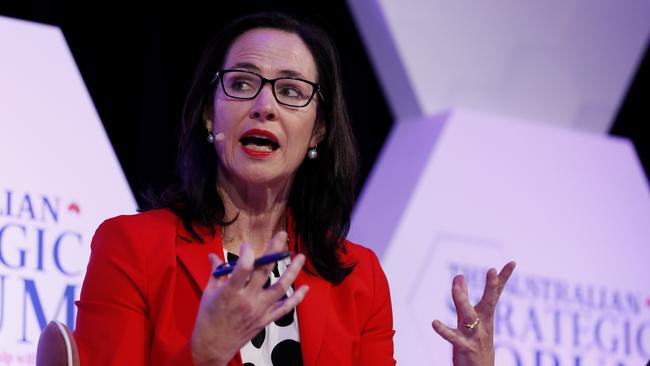New rules to fight foreign influence
The country’s most prestigious universities say they will vet all commercial contracts signed with China as they admit measures to combat Beijing’s influence on campus.

The country’s most prestigious universities say they will vet all commercial contracts signed with China as they admit measures to combat Beijing’s influence on campus and in research have not been adequate.
The Group of Eight, which represents the largest higher education institutions including Sydney University and Melbourne University, has also put together a high-level working group to deal specifically with issues about foreign interference and influence on campus.
The measures include not only a clamp-down on commercial deals with China, but also more scrutiny over conflicts of interest.
Vicki Thomson, the Go8’s chief executive, on Sunday said the government had informed the sector that it was not against China’s Thousand Talents plan but was “determined to ensure it is transparent … All our universities have reviewed, and where necessary upgraded and implemented, relevant policies and procedures including around conflict of interest and secondary employment in line with guidelines developed jointly by our universities and the federal government.”
Those changes included the appointment of chief security officers at universities who did not already have them in place, new approval processes for all commercial contracts with China, disclosure of interest and secondary employment registers and the establishment of research risk advisory committees to deal with foreign interference issues.
The Australian today reveals a widespread pattern dating back several years of universities being unaware of their own employees’ involvement in Chinese research programs.
In many cases, institutions denied academics’ involvement until presented with evidence by The Australian.
The sector’s efforts now at increased transparency could be hampered by official edicts from Chinese government research organisations for academics involved in the Thousand Talents program not to mention their affiliations with the scheme.
The National Natural Science Foundation of China, a prominent official agency, told interviewers of potential applicants to avoid e-mail correspondence while another urged the removal of information on university websites related to the Thousand Talents scholars, according to details published by prominent academic journal Nature in 2018.
In Australia, many universities rely on disclosures from their academics. The Australian is not suggesting any individual academics have failed to comply with disclosure obligations.
A UNSW spokeswoman told The Australian that the university had “relied on information provided by individual academics, as well as our own knowledge of published works”.
“The university works closely with relevant federal government agencies to pursue greater transparency, as well as increased government collaboration and assistance, to ensure our operations are always in line with the national interest, and our students and research are protected,” she said.
Other major universities are aware of disclosure issues.
A University of Queensland spokeswoman said it had put in place new conflict-of-interest and secondary employment policies, but only in recent months.
Read the full response from Australian National Univeristy
Read the full response from Curtain University
Read the full response from Deakin University
Read the full response from La Trobe University
Read the full response from Monash University
Read the full response from RMIT University
Read the full response from the University of New Castle
Read the full response from the University of New South Wales
Read the full response from the University of Southern Queensland
Read the full response from the University of Sydney
Read the full response from the University of Queensland
Read the full response from the University of Tasmania
Read the full response from the University of Technology Sydney
Read the full response from the University of Western Australia
Read the full response from Victoria University



To join the conversation, please log in. Don't have an account? Register
Join the conversation, you are commenting as Logout